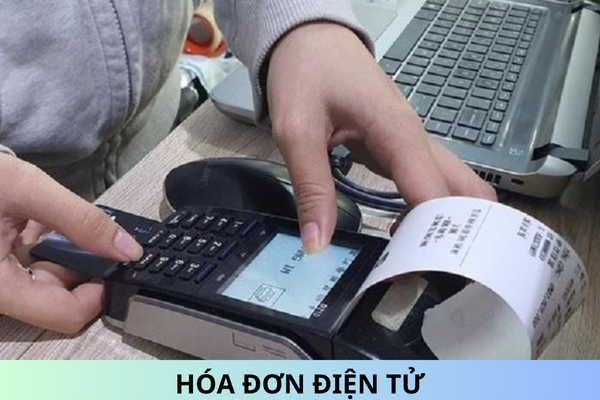What terms are abbreviated on electronic invoices in Vietnam?
What terms are abbreviated on electronic invoices in Vietnam?
Based on Clause 5, Article 10 of Decree 123/2020/ND-CP regulating the contents of invoices:
Article 10. Contents of invoices
[...]
- Name, address, and tax code of the buyer
a) In the case where the buyer is a business entity with a tax code, the name, address, and tax code of the buyer displayed on the invoice must be recorded exactly as on the certificate of business registration, branch operating registration certificate, household business registration certificate, taxpayer registration certificate, tax code notification, investment registration certificate, or cooperative registration certificate.
If the name or address of the buyer is too long, on the invoice, the seller is allowed to abbreviate some commonly used nouns such as: "Phường" to "P"; "Quận" to "Q", "Thành phố" to "TP", "Việt Nam" to "VN" or "Cổ phần" to "CP", "Trách nhiệm Hữu hạn" to "TNHH", "khu công nghiệp" to "KCN", "sản xuất" to "SX", "Chi nhánh" to "CN"… but must ensure the complete house number, street name, ward, commune, district, city, and accurately determine the name and address of the enterprise, and conform to the business registration, taxpayer registration of the enterprise.
b) In the case where the buyer does not have a tax code, the invoice does not need to display the buyer's tax code. In certain cases of selling goods or providing specific services to individual consumers as stipulated in Clause 14 of this Article, the invoice does not need to show the name and address of the buyer. When selling goods or providing services to foreign customers visiting Vietnam, information about the buyer's address may be replaced with information about the passport number or entry and exit documents and nationality of the foreign customer.
[...]
Thus, the current law allows the following abbreviations on electronic invoices:
- "Phường" to "P"
- "Quận" to "Q"
- "Thành phố" to "TP"
- "Việt Nam" to "VN"
- "Cổ phần" to "CP"
- "Trách nhiệm Hữu hạn" to "TNHH"
- "khu công nghiệp" to "KCN"
- "sản xuất" to "SX"
- "Chi nhánh" to "CN"
Note: When abbreviating, it must ensure the complete house number, street name, ward, commune, district, city, and precisely identify the enterprise's name and address, and conform to the business registration, taxpayer registration of the enterprise.
The economic and financial content on accounting documents must not be abbreviated, erased, or corrected; when writing, it must be in ink, numbers, and letters written continuously without gaps, and blank spaces must be crossed out.

What terms are abbreviated on electronic invoices in Vietnam? (Image from the Internet)
What are the principles for establishing, managing, using electronic invoices in Vietnam?
Based on Article 90 of Law on Tax Administration 2019 on the establishment, management, and use of electronic invoices in Vietnam:
- When selling goods or providing services, the seller must create an electronic invoice to give to the buyer in the standard data format and must fully record the content according to regulations of the tax law and accounting law, regardless of the value of each sale of goods or services provided.
- If the seller uses a cash register, they must register to use electronic invoices generated from a cash register connected to transmit electronic data to the tax authority.
- The registration, management, and use of electronic invoices in the transaction of selling goods and providing services must comply with the provisions of the law on electronic transactions, the law on accounting, and the law on taxation.
- The issuance of a tax code by the tax authority on the electronic invoice is based on the information of the enterprise, economic organization, other organization, business household, or individual business established on the invoice. Enterprises, economic organizations, other organizations, business households, and individual businesses are responsible for the accuracy of the information on the invoice.
What is the electronic invoice database in Vietnam used for?
Based on Article 93 of Law on Tax Administration 2019 on the database of electronic invoices:
Article 93. Database of electronic invoices
- The tax authority is responsible for organizing the construction, management, and development of the database, technical infrastructure of the invoicing information system; organizing the collection and processing of information, management of the invoice database, ensuring maintenance, operation, security, and safety of the invoice information system; and developing standard formats for invoices.
The electronic invoice database is used to serve tax management and to provide electronic invoice information to related organizations and individuals.
- Enterprises and economic organizations regulated in Clause 2, Article 91 of this Law use electronic invoices without the tax authority's code to provide electronic invoice data as prescribed by the Minister of Finance.
[...]
Thus, the electronic invoice database is used to serve tax management and to provide electronic invoice information to related organizations and individuals.










